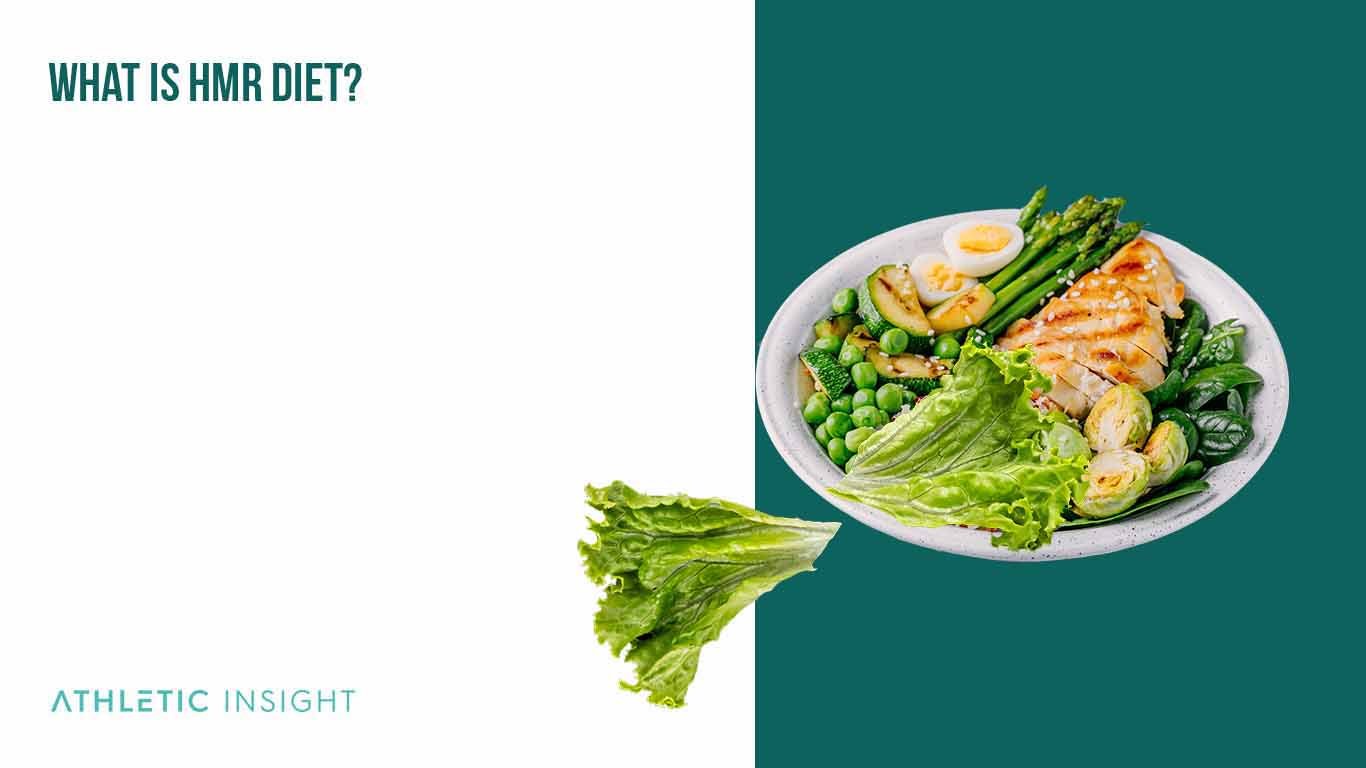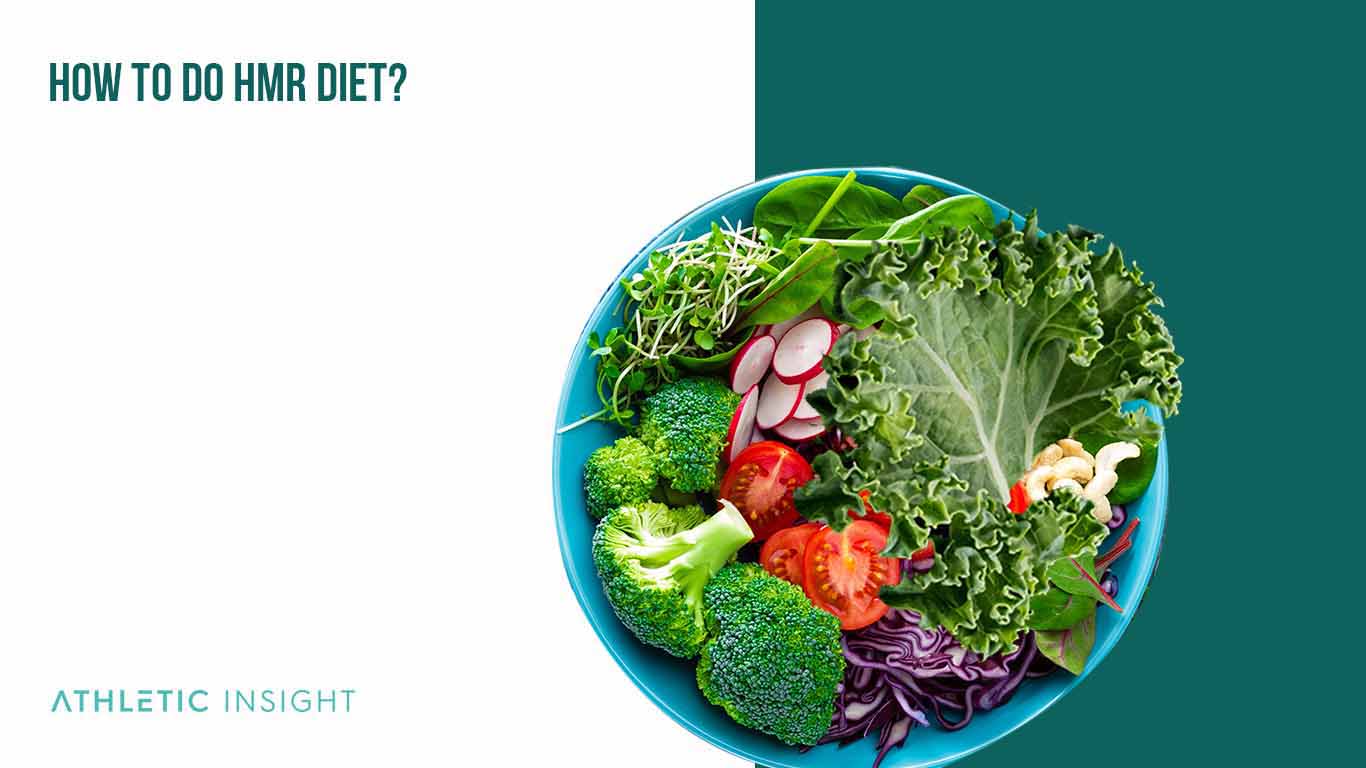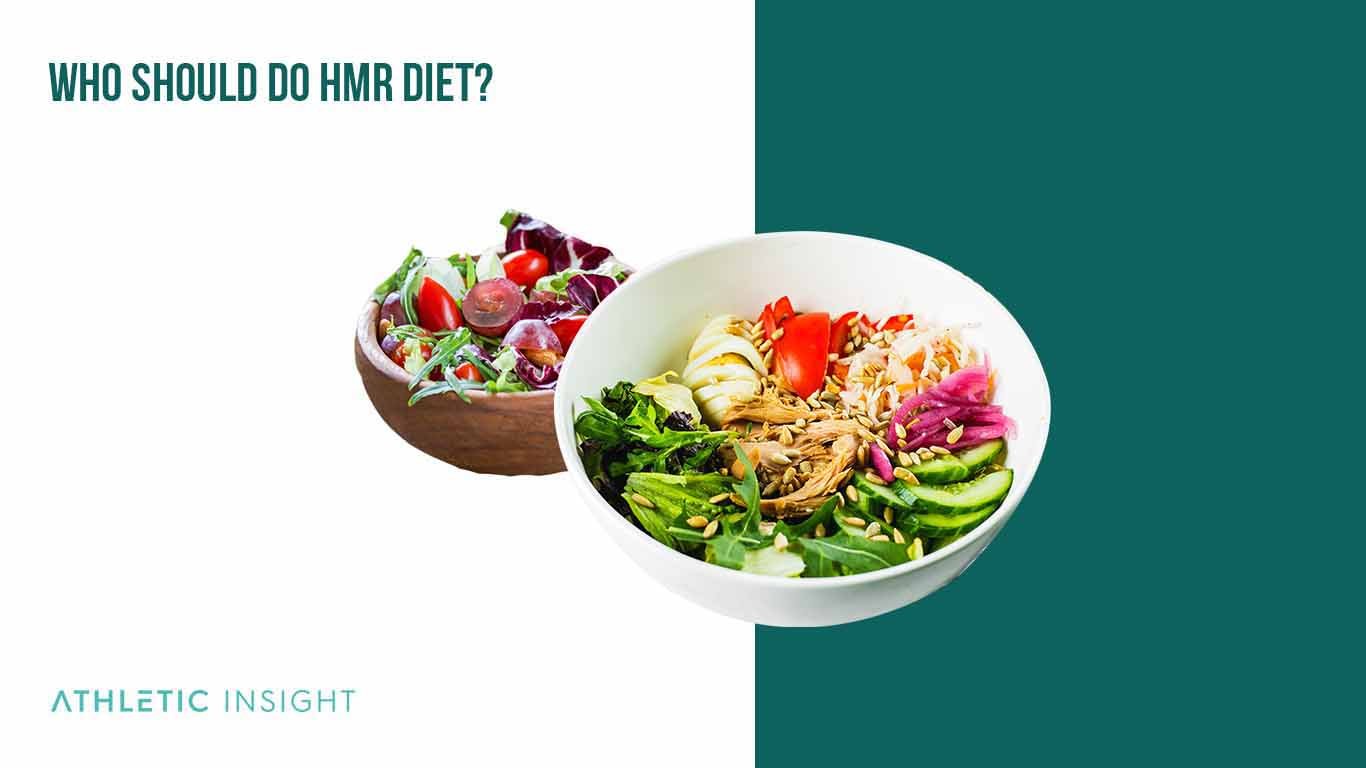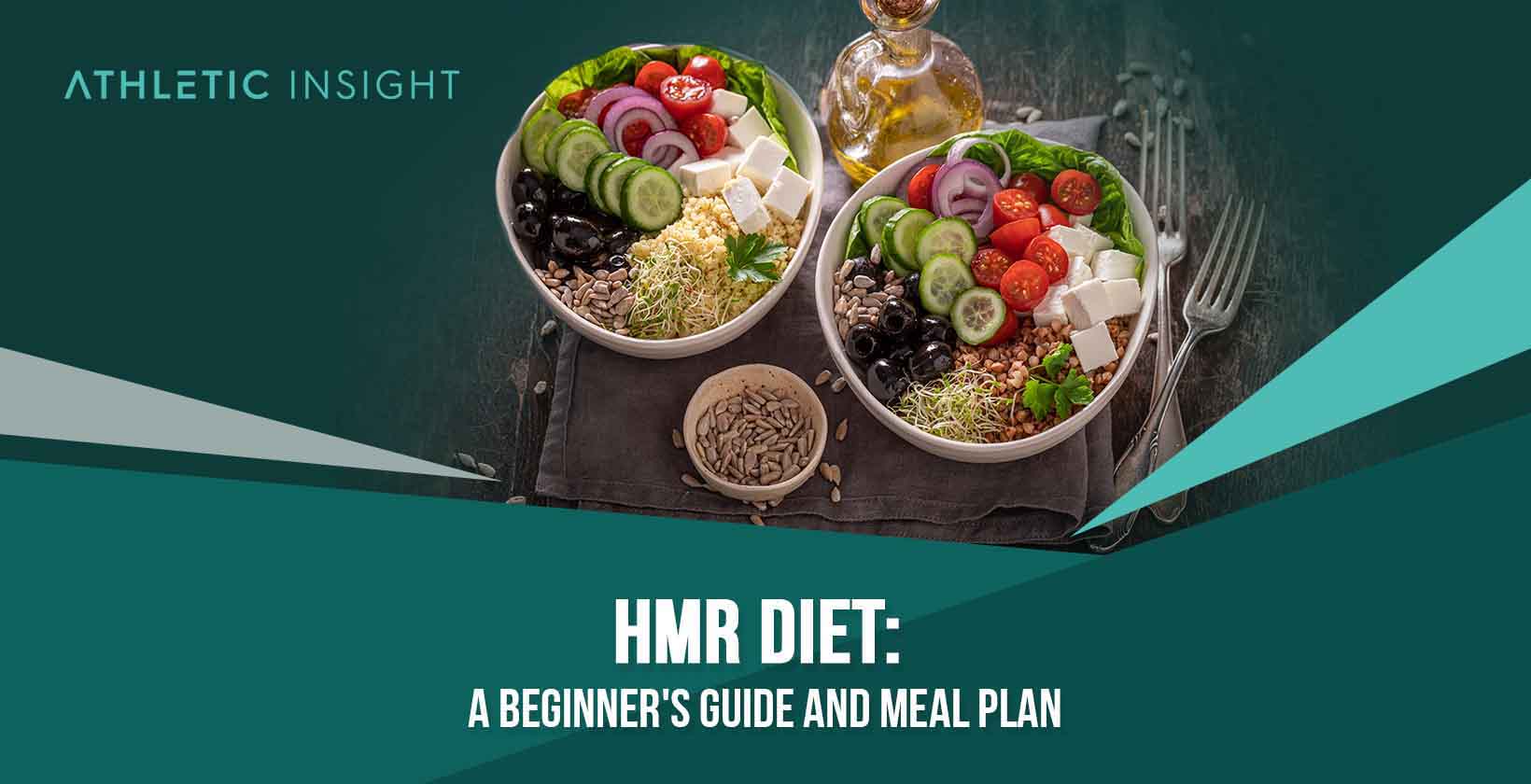The HMR diet, or Health Management Resources, is a meal-replacement plan that provides its participants with HMR shakes, HMR entrees, and HMR bars. The purpose of the HMR diet is to help dieters lose weight by eating meal replacement shakes instead of regular meals.
The HMR diet is designed to help you lose weight quickly and safely by providing a balanced meal plan, easy-to-follow recipes, and regular support. It also includes exercise recommendations and tips for staying motivated. You will be at a calorie deficit while completing this diet, but you won’t miss any critical minerals or vitamins your body needs to stay healthy.
What Is the HMR Diet?
Famed behavioral psychologist Lawrence Stifler, Ph.D., developed Health Management Resources (HMR) over 30 years ago. He designed this diet to be low-calorie (1200-1400 calories) and was one of the first to use shakes to control cravings.

The combination of monitored portion shakes and entrees, along with fresh fruits and vegetables, proved to be a highly effective combination for weight loss. The meals will help you stay satiated, and the ability to eat fresh fruits and vegetables enables you to counteract the cravings you may have while on this diet.
In addition to the diet, HMR also suggests regular physical activity to boost calorie burning. You can get support from HMR health coaches and other medical professionals to stay on track and finish the diet plan. While following the HMR diet, you can expect to feel hungry when first starting, but most report that the hunger goes away.
How Does HMR Diet Work?
The HMR diet works by putting your body in a calorie deficit by providing HMR shakes, HMR entrees, HMR bars, and other healthy snacks to help you reduce your calorie intake. A calorie deficit is when you are consuming less calories than you are burning. In order to get the energy that it needs, your body will burn stored fat which will result in weight loss.
The HMR diet tackles a typical weight loss problem. After going on a diet, many people rapidly gain weight back. Regaining weight is a result of your body’s reference point. If you have carried extra weight for an extended period, your body will try to return to that weight.
- Phase 1: The first phase of HMR lasts eight weeks or longer, depending on how much weight you want to lose. You will consume HMR food replacements during this time, including shakes, bars, meals, and fruits and vegetables. You will be at an 800-100 calorie deficit during this stage. The purpose of this phase is to lose as much weight as possible. During this phase, you will experience cravings and hunger. HMR coaches suggest drinking water and eating HMR snacks such as HMR popcorn or HMR pretzels to help reduce cravings.
- Phase 2: The second phase of the diet focuses on helping you keep off the weight lost by slowly transitioning back to regular foods and portions. Instead of eating mostly HMR replacement meals, you will only eat five per week. The slow adjustment to typical food will help you monitor portion control and implement the new healthy habits you learned during phase one.
During both phases of the program, you are encouraged to engage in a reasonable amount of moderate physical activity. Physical activity will help you burn calories and also curb the sensation of hunger. Plus, incorporating exercise into your lifestyle will help you keep off the weight and stay healthier in the long run.
What Are the Health Benefits of the HMR Diet?
There are many health benefits to completing the HMR diet such as improved blood sugar, blood pressure, and cholesterol levels as well as weight loss and better nutritional awareness.
- Improve blood sugar, blood pressure, and good cholesterol levels: HMR diet incorporates HMR shakes and HMR entrees for breakfast and lunch, which are low in sugar and sodium. HMR meal items are also low in fat and have no trans fats, which helps keep your cholesterol levels healthy.
- Losing weight: HMR diet helps you lose weight quickly. HMR meals are low-calorie and convenient, which makes it easier to stick to the diet and stay within the calorie deficit. Losing weight is the primary benefit of the HMR diet.
- Better nutrition and portion control: The HMR diet helps you learn proper portion sizes and nutrition. Knowing the appropriate portion size is one of the biggest challenges of maintaining a healthy weight.
What Are the Health Risks of the HMR Diet?
Like any diet, there are some negatives to the HMR diet such as lower metabolism, increased risk of bone loss, fertility and immunity issues.
- Lower your metabolism – Another problem with staying at a calorie deficit for an extended time is that your body’s metabolism can slow down. A slower metabolism can make it harder for your body to lose weight because you burn fewer calories.
- Increase the risk of bone loss – The HMR diet can help you lose weight quickly, but it is vital to consider the potential health risks. Ensure you get enough calcium and vitamin D to maintain good bone health.
- Fertility and immunity issues – Since you are at a severe calorie deficit, your body is not getting enough calories to complete all of its functions, including fertility and immunity. While on this diet, your body cannot protect itself against disease. You should also avoid trying to get pregnant while on this diet because the calorie deficit can negatively impact the fetus.
How To Do HMR Diet?
The HMR diet is easy to start and follow. You can begin the diet by visiting the HMR website and purchasing your desired plan. After paying, you will receive your prepackaged smoothies, bars, and meals. You will also receive an HMR lifestyle guide to help you stay on track.

In addition to prepackaged meals, you can supplement your food with fresh fruits and vegetables. You need to follow the diet for the recommended time and exercise if you want to achieve your weightloss goals.
While on the HMR diet, you will consume 1200-1400 calories daily. At this level of consumption, you will be at a 600-1000 calorie deficit.
The first phase of the HMR diet can last 8-12 weeks, depending on how much weight you want to lose. The second phase can last up to four weeks for a total of 12-16 weeks.
While completing the HMR diet, you should exercise regularly, drink lots of water, and get enough sleep. Exercise helps to boost your metabolism and burn more calories while also helping you stay motivated.
What Are the Foods That You Can Eat While on an HMR Diet?
While on the HMR diet, you should avoid almost all foods since you consume prepackaged meals. However you can eat fresh fruits and vegetables.
- Fruits: apples, oranges, bananas, and berries
- Vegetables: celery, carrots, and broccoli
- Grains: You cannot eat any additional grains besides what is included in the HMR meals.
- Legumes: Legumes are high calorie and you cannot eat them.
- Nuts: Nuts are another high calorie food you should avoid.
- Seeds: You cannot eat seeds on the HMR diet.
- Healthy fats: No healthy fats are allowed on this diet.
- Proteins: The only proteins you can eat are the ones provided in the meal plan.
What Are the Foods That You Should Avoid While on an HMR Diet?
Since the HMR diet focuses on prepacked meals, you should avoid any foods not included in your meal plan.
- Meat: steak, pork, bacon
- Poultry: chicken and turkey
- Fish and shellfish: canned tuna
- Meat-based ingredients: deli meats
- Eggs: boiled or fried eggs
- Dairy products: sour cream, yogurt, and milk
You need to avoid these foods because they will increase your calorie intake and take you out of a calorie deficit. Getting out of a calorie deficit will prevent you from losing weight.
Who Should Do the HMR Diet?
People whose primary goal is losing weight should do the HMR diet. The focus of this diet is to put you in a calorie deficit to help you lose weight and establish a new body reference point. It can also be an ideal diet for bodybuilders preparing for a competition. A large calorie deficit can help you develop a lot of body definition.

How Easy Is an HMR Program To Follow?
The HMR program is easy to follow because all the food is prepackaged and selected for you. You don’t have to worry about purchasing or buying food since the HMR program provides your meals.
The biggest challenge in following the HMR program is the calorie deficit. You will experience hunger cravings that may be hard to overcome. You can follow the HMR bodybuilding diet if you want to cut prior to a competition.
What Is a Sample HMR Diet Plan?
A sample meal plan from HMR includes three HMR shakes and one HMR Entree. For breakfast, you can have an HMR shake with 1/2 cup of berries or an HMR Entrée with a salad. You can have an HMR shake and HMR Entrée or HMR Nutri-Bar for lunch. You can have an HMR shake and HMR Entrée or HMR Nutri-Bar for dinner. You will repeat this process for the entire first phase of the diet program.
What Are the Best Recipes for HMR Diet?
It is important to remember that you do not need recipes during the first phase of the HMR diet. During the second phase, these are some of the best recipes you can incorporate.
- Crispy Veggies: This vegetable dish will make it easy to get in your daily vegetable servings while also holding off your cravings.
- Risotto Riot: The combination of fresh vegetables and risotto is filling and delicious.
- Healthy Turkey Burgers: Substituting turkey for beef cuts down the number of calories.
- Spiced Carrot and Lentil Soup: This tasty soup will keep you warm and full even on a cold night while dieting.
- Sesame Beef with Noodles: This beef and noodle dish is filled with protein which will help you avoid hunger pains.
What Are the Facts About the HMR Diet?
There are some important facts you should know about the HMR diet including what happens during the first week, the cost, how it compares to the Atkins diet, and the weight loss.
- Research based: The HMR diet is a safe and tested method for losing weight. Many scientific studies have proven HMR to be an effective way of losing weight.
- The First Week: During the first week of the HMR diet, you will have low energy levels and may be irritable due to the caloric restrictions. These symptoms will subside over time.
- The Cost: The HMR Diet is $90-110 per week. The price depends on what package you select.
- Comparison with Atkins Diet: The HMR and Atkins diet are similar because they both provide flexible pre-packaged meals delivered to your door.
- Weight Loss: The HMR diet can be an excellent way for most people to lose weight and establish healthier eating habits. By following the HMR diet, you can learn how to make better food choices that will lead to long-term weight loss.
How Much Does an HMR Program Cost?
The HMR program is expensive. It costs $270 for the first three weeks and $185 for each additional two-week program. If you want to order the shakes, it is $110 for the first three weeks and $92 for each additional two-week subscription. This price comes out to about $15/day. Other similar diets like Jenny Craig cost $20/day.
What Is the Difference Between HMR Diet and Medifast?
The primary difference between the HMR diet and Medifast is the type of food. HMR focuses on prepackaged meals, while Medifast relies more heavily on shakes and bars. HMR also offers a more comprehensive approach to dieting with the HMR Lifestyle Education program, which helps you make lifestyle changes that help you maintain weight loss.



